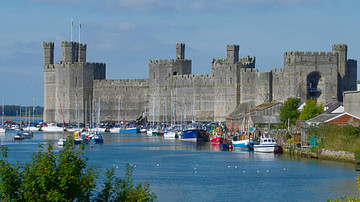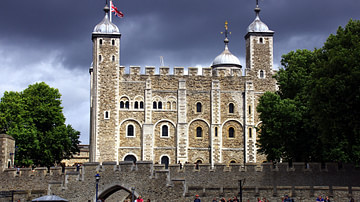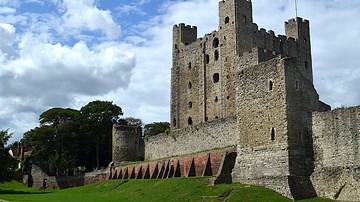Search Definitions
Browse Content (p. 142)

Definition
Ancient Persian Culture
Ancient Persian culture flourished between the reign of Cyrus II (The Great, r. c. 550-530 BCE), founder of the Achaemenid Persian Empire, and the fall of the Sassanian Empire in 651 CE. Even so, the foundations of Persian culture were already...

Definition
Caernarfon Castle
Caernarfon Castle (aka Caernarvon) is located in North Wales and was first built from 1283 CE by Edward I of England (r. 1272-1307 CE) to help, along with several other major castles, control the newly conquered area. As the administrative...

Definition
Persian Immortals
The Ten Thousand Immortals were the elite force of the Persian army of the Achaemenid Empire (c. 550-330 BCE). They formed the king's personal bodyguard and were also considered the shock troops of the infantry in Persian warfare. They are...

Definition
Tower of London
The Tower of London is a castle located in London alongside the River Thames which was first built by William the Conqueror from c. 1077 and significantly added to over the centuries. Often referred to in England as simply 'the Tower', it...

Definition
Islam
Islam is an Abrahamic-monotheistic religion based upon the teachings of Prophet Muhammad ibn Abdullah (l. 570-632 CE, after whose name Muslims traditionally add “peace be upon him” or, in writing, PBUH). Alongside Christianity and Judaism...

Definition
Ancient Persian Warfare
The ancient Persian military evolved from the earlier armed forces of the Medes which, in turn, developed from the warrior class of the indigenous people of the Iranian Plateau, the Aryan migrants (including the Persians) who later settled...

Definition
Philoctetes
The play Philoctetes was written by one of the greatest of the Greek tragedy playwrights, Sophocles, in 409 BCE. Philoctetes is one of his surviving plays whose exact production date can be determined and is set in the final year of the Trojan...

Definition
Rochester Castle
Rochester Castle, located in Kent, England, was first constructed shortly after 1066 CE by the Normans, was converted into stone between 1087 and 1089 CE, and then added to over subsequent centuries, notably between 1127 and 1136 CE, and...

Definition
Wolof Empire
The Wolof (aka Jolof or Djolof) Empire was a state on the coast of West Africa, located between the Senegal and Gambia rivers, which thrived from the mid-14th to mid-16th century CE. The empire prospered on trade thanks to the two rivers...

Definition
Persepolis
Persepolis was the capital of the Persian Achaemenid Empire from the reign of Darius I (the Great, r. 522-486 BCE) until its destruction in 330 BCE. Its name comes from the Greek Perses-polis (Persian City), but the Persians knew it as Parsa...